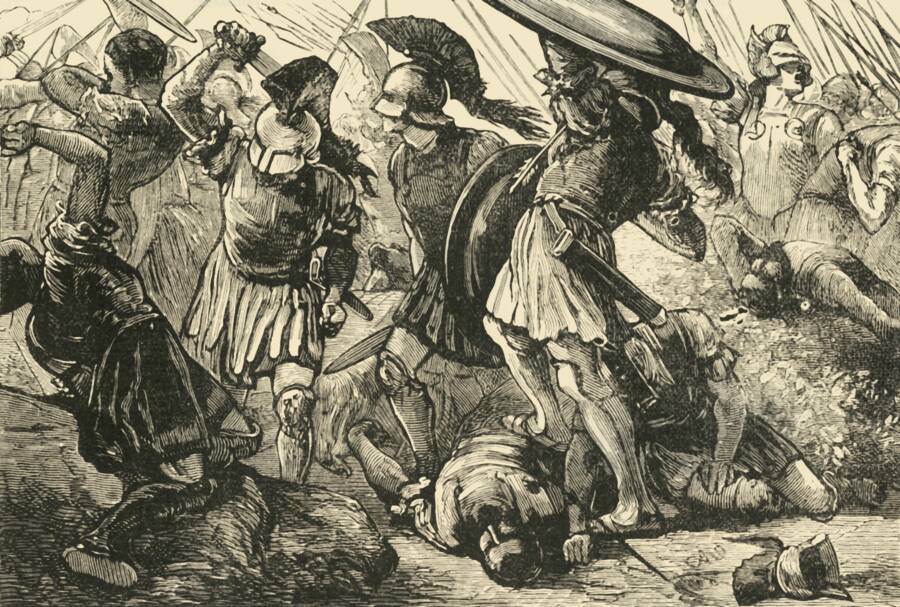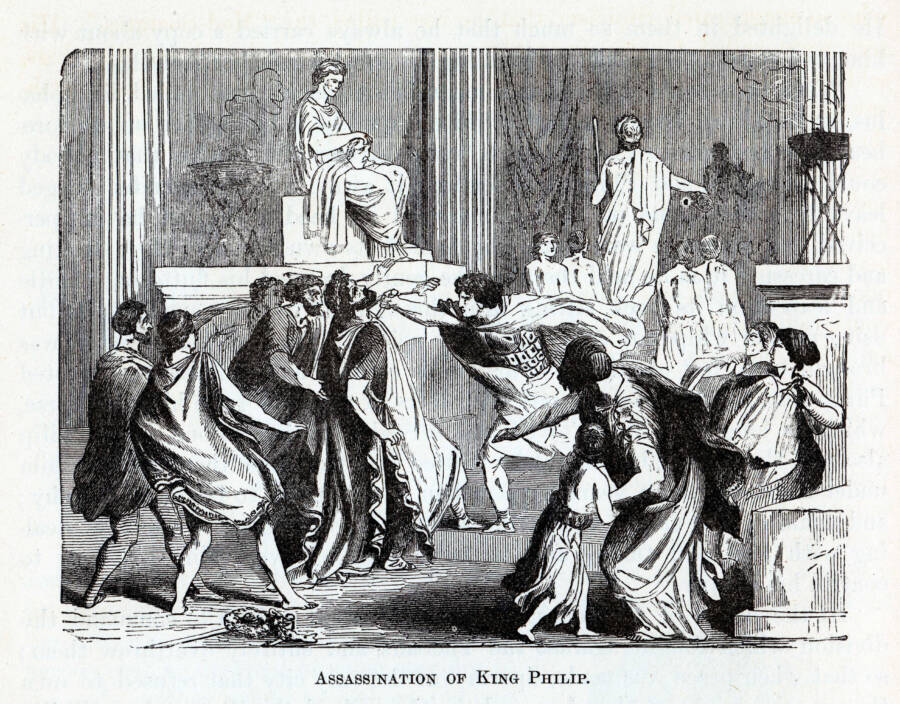Philip II Of Macedon — Alexander The Great’s Father Who Paved The Way For His Son

The Print Collector/Heritage Images via Getty ImagesAn illustration of the Battle of Chaeronea between the Macedonians, led by Philip II of Macedon, and the Thebans.
Alexander the Great is often recognized as one of history’s most exceptional rulers and conquerers, but the groundwork for Alexander’s expansion through Persian territory was first laid out by his own father, Philip II of Macedon.
According to The World History Encyclopedia, Macedonia was unstable throughout Philip II’s youth. A rare monarchy among the Greek city-states, it was regarded as primitive by the rest of Greece, only considered useful as a source of timber and pastureland.
Macedonia was additionally frequently attacked and invaded by other Greek city-states as the country was plagued by a series of civil wars at the time. During one of these invasions, the Thebans captured a young Philip and held him hostage for three years.
In the possession of the Thebans, Philip studied and learned the tactics of the famed commanders Epaminondas and Pelopidas — which would later prove useful.
Philip’s brother, Perdiccas, gained his release from the Thebans, but shortly after, he was killed in battle fighting the Illyrians along the northern border of Macedonia. Philip then ascended to the Macedonian throne in 359 B.C.E. at 23 years old.
Drawing from his experiences in Thebes, Philip completely restructured the army of Macedonia, increasing its size from 10,000 to 24,000 and enlarging the cavalry from 600 to 3,500.
Per National Geographic, Philip turned his army of citizen-soldiers into a proper, trained force.
His soldiers were trained to fight as a phalanx; his corps of engineers worked to develop siege weaponry like towers and catapults; and to provide soldiers a sense of unity, they swore allegiance not to an individual town or province, but only to the king himself.
Beyond bolstering his military, Philip strengthened the capital city of Pella by inviting poets, writers, and philosophers from other city-states to the Macedonian capital — including Aristotle, who was asked to teach Philip’s son, Alexander.

Fine Art Images/Heritage Images/Getty ImagesAn 1882 illustration of the assassination of King Philip II of Macedon.
The logic was sound: By inviting his neighbors’ sons to gain an education in Pella, Philip was also discretely keeping them within the city as hostages, dissuading any potential invasions.
When a third civil war broke out among the Greek city-states, Philip’s strategic foresight gave his army the advantages it needed. By 336 B.C.E., Philip had expanded his empire and dominated all of Greece.
Then, he set his sights on the Persian Empire.
Unfortunately, before he could launch his campaign against the Persians, he was assassinated, and his son Alexander III took his place, cementing himself in history as Alexander the Great.





